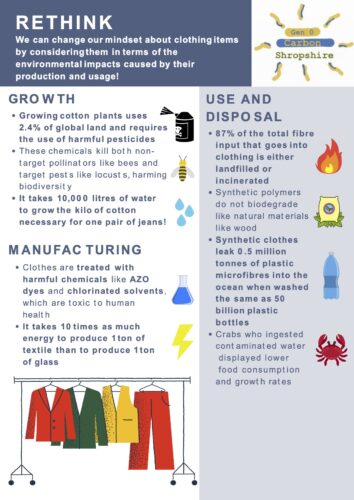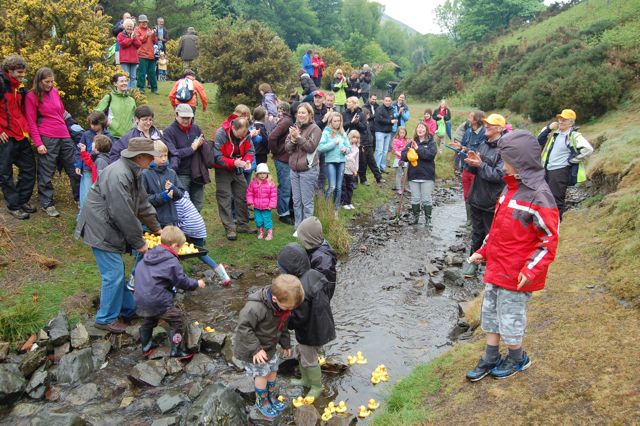What are the issues with Consumerism?
In an age of rapid technological advancement and relentless marketing, consumerism has become an integral part of our daily lives without us really noticing. However, the flip side of this voracious appetite for goods is the severe environmental toll it exacts. The impacts of overconsumption are manifold, ranging from resource depletion to pollution and climate change.
Key threats to the environment include:
- Resource Depletion: Consumerism drives demand for raw materials, leading to the depletion of natural resources such as forests, minerals, and water. The extraction and processing of these resources contribute to habitat destruction, deforestation, and irreversible damage to ecosystems. This is particularly well illustrated by the fashion industry where fast fashion causes devastating impacts.

- Waste Generation: The incessant cycle of buying, using, and discarding products generates an enormous amount of waste. Landfills overflow with non-biodegradable materials, polluting soil and water, while the incineration of waste releases harmful toxins into the atmosphere.
- Climate Change: The production and transportation of goods contribute significantly to greenhouse gas emissions. The carbon footprint associated with manufacturing processes, coupled with the energy-intensive transportation of products across the globe, accelerates climate change, posing a grave threat to the planet.
- Loss of Biodiversity: Habitat destruction, driven by the expansion of manufacturing and agricultural activities to meet consumer demands, threatens biodiversity. Species are pushed to the brink of extinction as their natural habitats are compromised for human consumption patterns. For example, the growth in consumption of meat worldwide is a major driver of deforestation in the Amazon, with soya beans often imported to feed UK livestock.
What can I do?
- Practice Conscious Consumerism: Make informed choices about the products you purchase. Consider the environmental impact, ethical production practices, and the lifespan of items before making a purchase. Supporting sustainable and eco-friendly brands encourages responsible business practices.
- Embrace Minimalism: Adopting a minimalist lifestyle can significantly reduce overconsumption. Focus on acquiring only what is necessary, decluttering your living space, and avoiding the accumulation of items that contribute to a disposable culture. Buy just what you need, not what you want.
- Reduce, Reuse, Recycle: Incorporate the principles of the circular economy into your daily life. Reduce waste by choosing products with minimal packaging, reuse items whenever possible, and actively participate in recycling programs to ensure that materials are repurposed rather than discarded.
- Support Local and Sustainable Businesses: Prioritize local and sustainable products and businesses that prioritize ethical and environmentally friendly practices. By supporting local economies and sustainable initiatives, you contribute to the development of a more resilient and responsible consumer ecosystem.
- Use Your Voice: Spread awareness about the environmental impacts of consumerism within your community. Engage in discussions, share information on social media, and advocate for policies that promote responsible consumption and production.
- Repair and Upcycle: Instead of discarding items at the first sign of wear and tear, consider repairing or repurposing them. Embracing a culture of upcycling not only extends the lifespan of products but also reduces the demand for new resources.
Stretton Climate Care runs a Repair Cafe on the second Saturday of every month. It is generally held in the Scout Hut, with an occasional change in dates or venue – check the Events page for the latest information. The threats posed by consumerism and overconsumption are daunting and drivers of the climate crisis, biodiversity loss and pollution. However, the power to effect change lies in the hands of individuals. By making conscious choices, embracing sustainable practices, and advocating for responsible consumption, each person can contribute to a more harmonious relationship between humanity and the environment.
Let us recognise the impact of our choices and work collectively towards a future where the pursuit of material things does not come at the expense of our planet.
You can find out more about consumerism.


